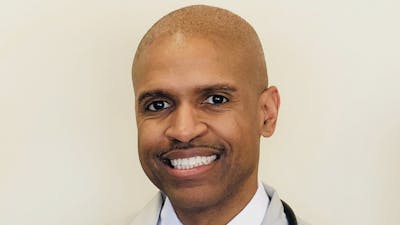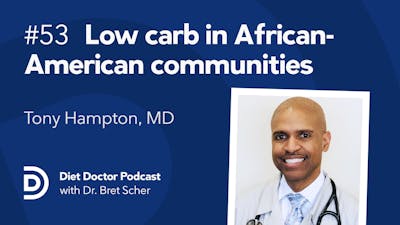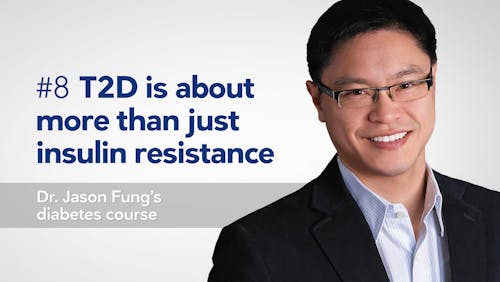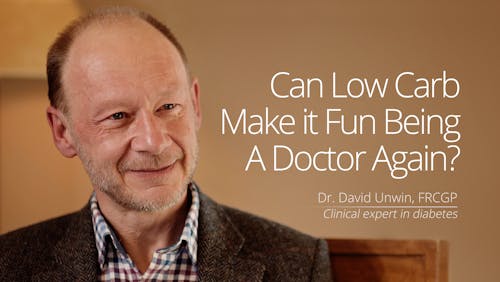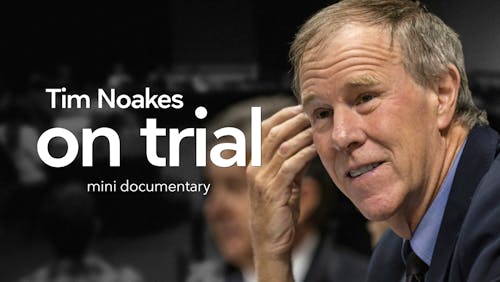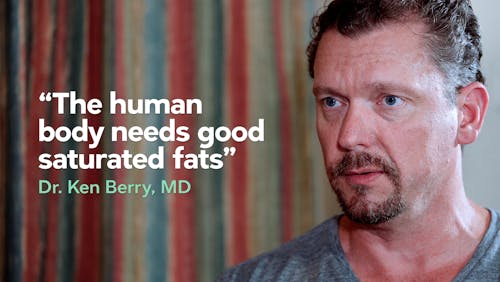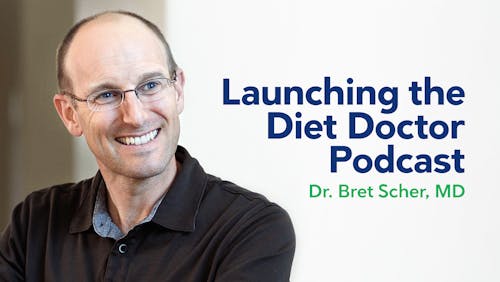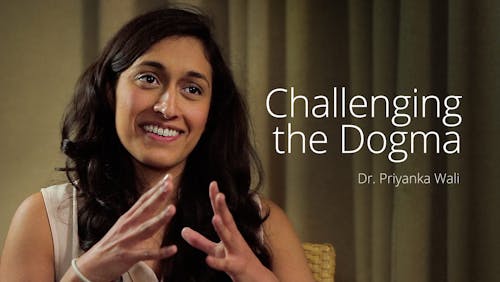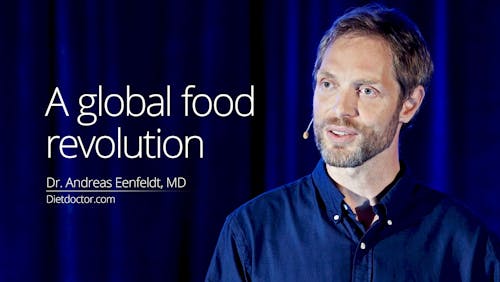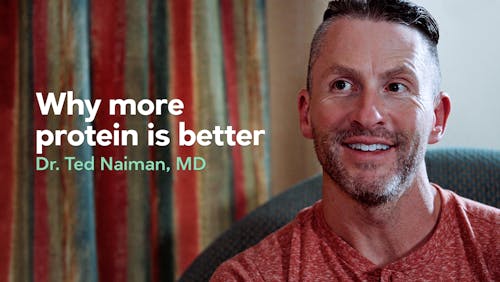Have a happy, healthy holiday

Photo: Spencer Bibbs
Dr. Tony Hampton is a family physician on the South Side of Chicago. He is writing a monthly column for Diet Doctor. This is his 12th column.
This special column will focus on how to get through the holidays in a way that keeps you healthy and happy. One of the best ways to achieve that, I think, is to apply the principles of “Protecting your N.E.S.T.” that I have shared in previous columns.
For those of you reading my column for the first time, I have two acronyms I use with my patients to help them focus on the things that can make them healthier. The first is “Protect your N.E.S.T.,” in which the letters stand for Nutrition, Exercise, Sleep/Stress, Thoughts/Trauma. The second is “Use your R.O.P.E. to get to your N.E.S.T.” The letters for R.O.P.E. are Relationships, Organisms, Pollutants, Emotions.
At this time of year, the “T” of N.E.S.T. and the “E” of R.O.P.E. can play an important role in how you approach carb temptations. How you think about the holidays and what your thoughts tell you about eating or not eating high-carb foods, can set you up for success or failure.
Additionally, your emotions at this time of year impact your decisions.
Let me illustrate both these principles with my own life — especially how I approach my mother’s delicious feast that she prepares. I’ll describe what I did this year at Thanksgiving, but the same principle applies to any family feast, such as the upcoming Christmas meal.
Know your “why”
I love my mom, and she loves me. Every year she prepares an amazing feast that I have come to associate with her love and care. Deciding not to eat some of the food she has prepared is an emotional decision.
My mom’s holiday dinner usually includes high-carb items like cranberry sauce, potato salad, mac and cheese, and croissants. She makes a wonderful sweet potato pie, and her turkey dressing is a family favorite. (Writing this column, I learned that about 75% of the US calls dressing “stuffing,” but in our family, it’s “dressing,” just like many African American families with roots in the South.) Whatever you call it, that savory mix of bread crumbs and spices cooked in turkey drippings is delicious.
But I know in the past, after every holiday feast, a few hours later, those rich starchy foods — especially my mom’s dressing — would have me doubled over in abdominal pain from my irritable bowel syndrome. I could be up most of the night, spending one or two hours in the bathroom. It would take a couple of days to get my stomach to return to normal.
My low-carb eating effectively eliminates my IBS, so I have a good reason to avoid the high-carb items. So instead, at Thanksgiving, I ate all the delicious low-carb fares: green beans, leafy greens, low-carb cauliflower mac and cheese, turkey, and ham. It was very filling and had only 12 grams of carbs. And even better, no after-meal stomach pain! I will do the same at Christmas.When you have a strong reason, it is easier to keep disciplined. Although I always want to honor my mom, I must first honor myself and — like my mom has done for me all my life — protect myself from harm. So my motivation, my “why,” was very clear — no abdominal pain.
Maybe you have IBS like me? Or maybe you need to tap into different motivations — maintaining the weight you have lost, keeping your blood sugar in a healthy range, or healing from another chronic condition like fatty liver, metabolic syndrome, inflammation, and joint pain — that the low-carb diet can help you achieve.
By focusing on your “why,” staying low carb over the holidays will be much easier.
Triggering addiction neurons
Do you have a carb addiction? Another motivation to stay away from high-carb holiday foods is whether or not they trigger in you cravings and possible binging, which will have you struggling to get back to low-carb eating for days or weeks after the season passes. (That sweet potato pie is a gateway drug!)
Carbohydrate addiction is controversial, but a growing number of addiction specialists believe it is a true addiction that affects brain neurons just like alcohol or drugs.
Some experts discourage eating foods that may trigger you over the holidays out of the concern that the addictive brain neurons that keep you addicted may never really go away. They believe these neurons wait in the background until you trigger them. And once triggered, it’s hard to put those once dormant neurons back to sleep, therefore putting you at risk for not returning to your pre-holiday low-carb state.
If you are interested in more discussion about this topic of carb addiction, check out one of my recent podcasts .
Are you metabolically flexible?
Perhaps you are eating low carb because you like the lifestyle and the easy weight maintenance, but you don’t currently have any health, weight, or metabolic issues.
You may have normal labs (HbA1c, triglycerides, HDL, fasting blood sugar, etc.), and you may not find that eating high-carb foods causes IBS or triggers strong cravings that last for days or weeks.
If you are like this, you are likely still metabolically flexible. Indulging in some high-carb treats at Christmas may not impact you as much as others. So you have more leeway to eat more carbs over the holidays.You have to know your own body and consciously choose the carb level that is right for you.
The struggle is real
Just because I coach patients and others to eat low carb and live this lifestyle myself does not mean I never struggle. It’s okay to struggle. It’s part of being human.
Although it gets easier over time, we all struggle. It’s an emotional struggle (my mom’s love in the form of her sweet potato pie), and it’s a physical struggle (addictive neurons that may never go away).
I treat struggle like it’s a cloud passing over my head. I have an awareness of the struggle, embrace it, but like the cloud, I know that struggle will eventually pass.
The biggest key to your success is having a plan. Just the fact that you are reading this article suggests you are evaluating how to handle the holidays. That is the first step to having a plan.As I noted at the start, how we think about the holidays, and our emotions around the food we eat, can impact our decisions. If you tell yourself that Christmas isn’t the same without a particular high-carb food, you are setting yourself up to eat that food. If you get emotional about missing out or feeling deprived, again, you are likely to consume that food. Try to separate your thoughts and emotions from the food and the traditions.
Other tips to help
- Bring your own food. With this approach, you can bring foods that suit your needs while still eating the other low-carb foods on the table with family members.
- Arrive with a full belly. If you know the foods won’t match your dietary approach, just eat before you go. Although holidays have historically been centered around food, maybe focusing on the gathering/social aspect more will serve you well.
- Hydrate. Make sure to drink plenty of water. Thirst often mimics hunger. Whether or not you are low or high carb for the holidays, you will usually eat less food if you drink more water.
- Alcohol is more potent if you are in ketosis, so be careful. Plus, alcohol is empty calories and also decreases inhibitions, making it more likely you’ll consume foods you had not planned to eat. So make sure to moderate your alcohol consumption.
- Fill up on the protein foods first — start off by eating the turkey, ham, or other high-protein foods, which are usually low-carb animal-sourced options. They can fill you up and reduce the chance hunger and cravings will have you indulging in carbs.
- Focus on what you can eat, not what you can’t. This is a mind game. I enjoy steak. I don’t eat rice. So, I don’t think about rice much. Instead, I can’t wait to eat the ribeye!
- If others are focusing on what you aren’t eating, saying things like “Surely you will have some of this dessert,” use the art of distraction and shift the conversation in a different direction.
The holidays are a wonderful time of year and should be enjoyed to the fullest. I hope that you now have more “food for thought” as you assess how you plan to proceed over the holidays.
I learn as much from my patients as they do from me, so share what you plan to do for the season’s many temptations in the comments. Do you have tips you want to share? Let others benefit from what you’ve learned.
Until the next column, be safe, be well, and continue to protect your N.E.S.T.
